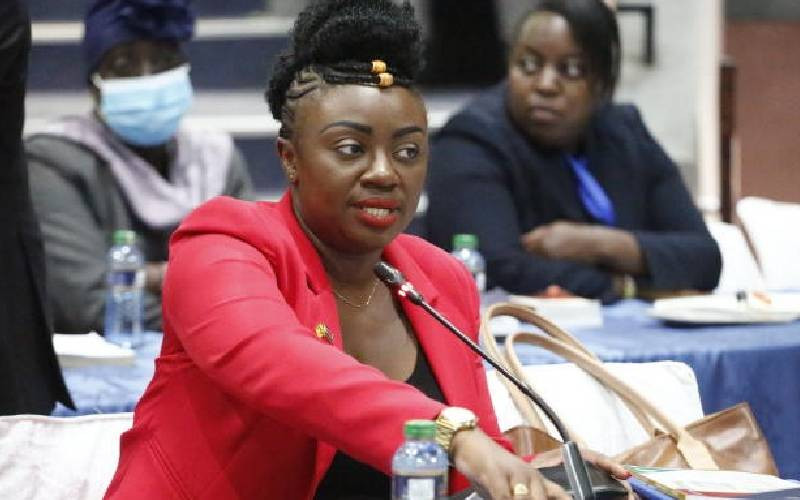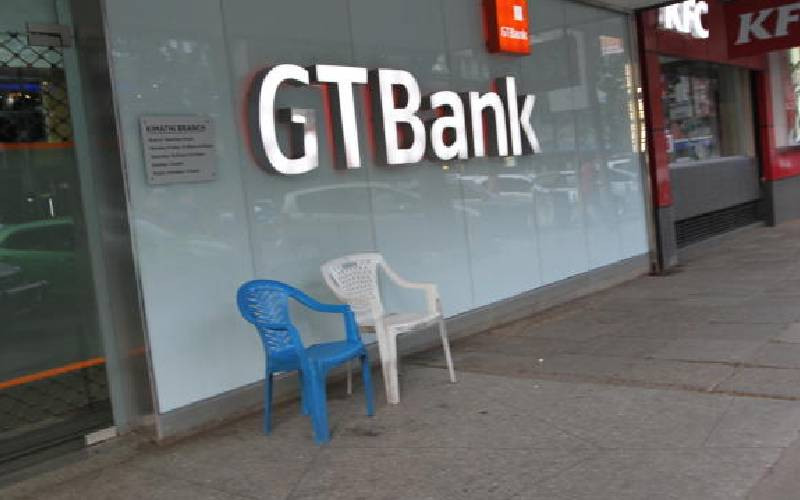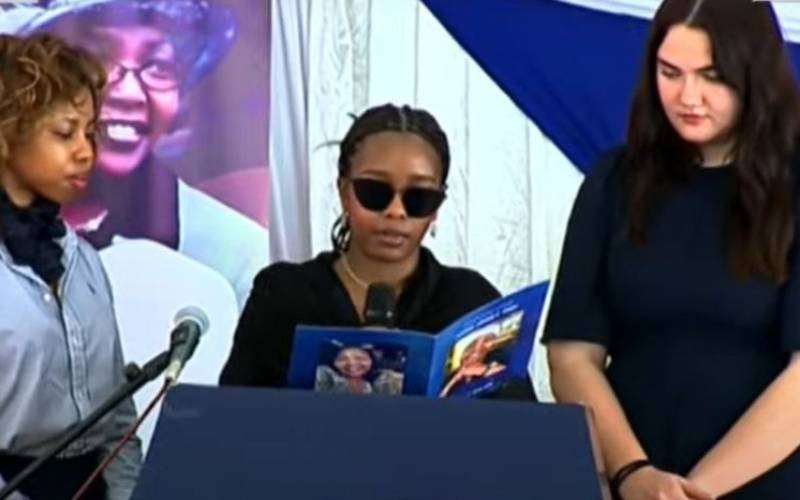 |
|
AK Vice-Preseident David Okeyo and Isaiah Kiplagat,addressing the press conference during the launch of Imenti South Road Race on 01-12-2014 in Nairobi.PHOTO/DENNIS OKEYO. |
Trouble seems to be stalking Athletics Kenya and its President Isaiah Kiplagat just days before the High Court rules over a pending special general meeting that seeks to strike him off the management of track and field sports in the country.
Kiplagat’s 21-year tenure at Riadha House is hanging by a thread as his long-time trusted lieutenants demand his immediate resignation following revelations the federation is stuck deep in the murky doping scandals, with 25 Kenyan athletes samples at the Olympics in 2012 said to be part of cover-up done by IAAF to protect the suspected culprits.
AK Vice Chairman Paul Mutwii, who has been leading the onslaught to remove Kiplagat from office, said the time was up for the AK president and the only option he had was to step aside to allow for a full investigation.
“AK is doing nothing to tame doping; they have been compromised,” he said.
Officials implicated in the doping scandal by foreign media have all resigned. They include the head of the Russian Athletics Federation, Valentin Balkhnichev, who stepped down as IAAF treasurer. Dr Gabriel Dolle, who was head of IAAF Medical Commission, also resigned while Papa Massata Diack, who owns Pamodzi Sports Marketing, is among three high-ranking IAAF officials who resigned four days ago in the wake of the scandalous doping report.
“They have shown him the way. Kiplagat should do the same. He refused to appear before the Ministerial Anti-Dope Task Force and see where his friends are now,” added Mr Mutwii.
“I am in the AK executive; let it be known that it is hard to push for any change from within.”
Nicholas Maswai, the AK Prisons secretary, said the AK President must take the blame for the tarnished name the sport has at the moment because he failed to act when the trouble started.
“The report by the foreign media shows IAAF trying to cover up and the 25 Kenyans involved make us look bad. That is part of the reason we have wanted to kick Kiplagat out of office. He should follow the example of his Russian colleague and step aside,” said Maswai.
“When all this was made public to IAAF, was he informed? Was Kiplagat aware? And what did he do? In addition, what involvement does his office have with Pamodzi Sports Marketing, a company owned by Papa Massata Diack? Was he auctioning our team?”
Diack, the company’s CEO and son of IAAF President Lamine Diack, quit as a marketing consultant for the world athletics ruling body where he was in charge of emerging markets – India, China, the Gulf and Africa.
Pamodzi wired $199,930 (Sh17.9 million) to AK Kenya in September 2010 to help fix a meeting between the Kenyans and a Mr Jimmy Qin to discuss among other things the design of the uniforms for the World Cross Country Championships team.
Ironically, AK Vice President David Okeyo withdrew the money and it has not been explained in the AK financial accounts how it was used. When we contacted Mr Okeyo, he said he was in a meeting and promised to call back. He didn’t call by the time of going to press.
Joseph Kinyua, the then AK treasurer, was not involved in the transaction. “We need honest people leading us. It is important for the two officials to step aside and allow investigations to take place,” said Mutwii.
Stay informed. Subscribe to our newsletter
 The Standard Group Plc is a
multi-media organization with investments in media platforms spanning newspaper
print operations, television, radio broadcasting, digital and online services. The
Standard Group is recognized as a leading multi-media house in Kenya with a key
influence in matters of national and international interest.
The Standard Group Plc is a
multi-media organization with investments in media platforms spanning newspaper
print operations, television, radio broadcasting, digital and online services. The
Standard Group is recognized as a leading multi-media house in Kenya with a key
influence in matters of national and international interest.
 The Standard Group Plc is a
multi-media organization with investments in media platforms spanning newspaper
print operations, television, radio broadcasting, digital and online services. The
Standard Group is recognized as a leading multi-media house in Kenya with a key
influence in matters of national and international interest.
The Standard Group Plc is a
multi-media organization with investments in media platforms spanning newspaper
print operations, television, radio broadcasting, digital and online services. The
Standard Group is recognized as a leading multi-media house in Kenya with a key
influence in matters of national and international interest.









